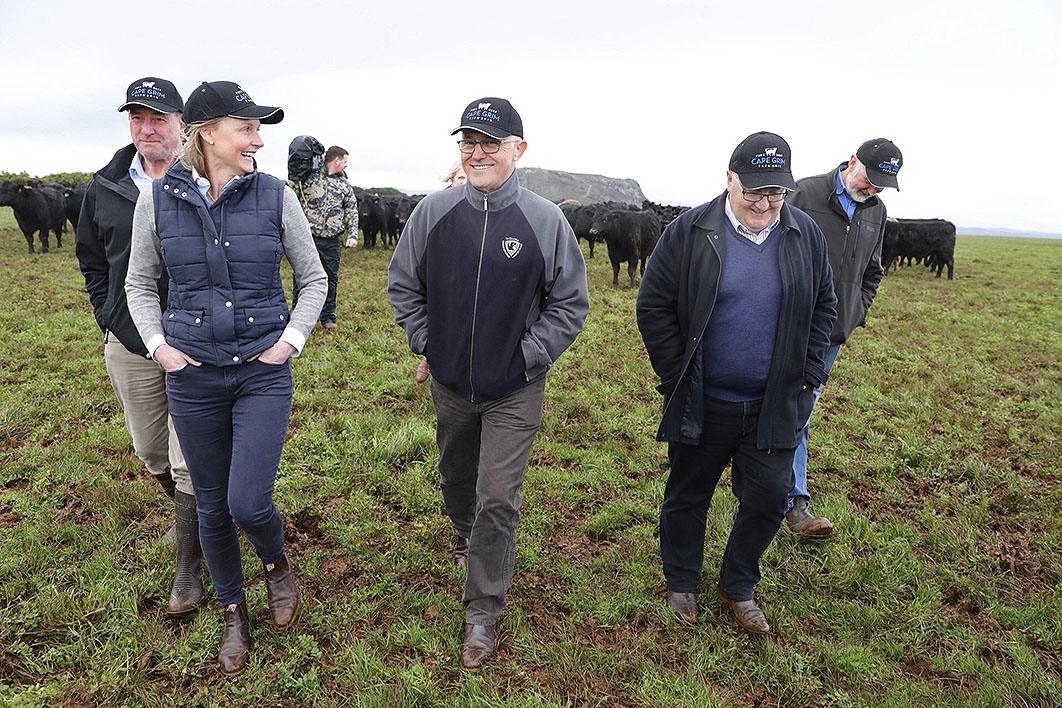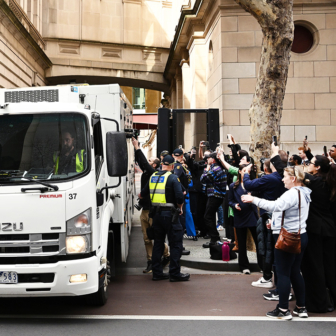First published 27 July 2018
It’s a fair bet that media regulation isn’t a hot issue in tomorrow’s Braddon by-election, but it probably should be. Assuming the merger announced yesterday goes ahead, the region’s dominant local newspaper, the Burnie Advocate, will shortly become part of the Nine conglomerate. Its future is thus uncertain — as is the fate of many other newspapers that are key presences in local communities around the nation, and a vital part of the democratic health of Australia.
At around the sixteen-minute mark of the briefing to investors yesterday, Nine CEO Hugh Marks made it clear that non-metropolitan newspapers probably have no future within the new company. Asked about the future of Fairfax’s regional and New Zealand publications, he said that it should be “no surprise” that the company’s focus would be on high-growth components of the business, and “strategically we want to ensure the management team has the ability to focus on those high-growth areas.”
What this means, he added, is that “those other businesses that may not fit that high-growth model may be better off serviced by being part of some other environment.” Remove the awful business-speak and it’s pretty clear. The local papers are likely to be up for sale.
This should bother the current government, if its rhetoric is to be taken seriously. It claims to care about the quality of news in local communities in the wake of media mergers. Indeed, one of the few sops it gave when it changed the media ownership regulations last year was a $60 million fund mainly for supporting local journalism — a small recognition that it is here that the worst of the hollowing out of news media has occurred.
The other big rural player, News Corp, also seems to be contemplating getting out. In what looks like an effort to fatten up local media for possible sale, the company has introduced a premium subscription for its local publications. My intelligence from inside News is that the move is going well financially. But for readers it means that if you want to read a suburban story in Adelaide or Townsville, you have to sign up to a whole year’s subscription.
News’s chief operating officer, Damian Eales, told Mumbrella recently, “We are finding that people are increasingly willing to pay for a subscription that includes exclusive content about their local council, their local business community, local development applications, local personalities and much more… The learning for us is that the more scarce the content, the more valuable it is.”
That shouldn’t be a surprise. In the new media world it is easier to find out what Donald Trump had for dinner last night than what is happening at your local school or why the pothole in the road hasn’t been fixed.
Research here and in the United States signals that it is the democratic health of local communities that suffers first from declines in journalistic capacity. Local organisations — councils and police stations — step up by running web pages and Facebook pages, but they can’t replace boots-on-the-ground journalism — reporters sitting in court, attending local council meetings and asking tough questions.
The former editor of the Burnie Advocate, Des Ryan, tells me that the paper has immense reader loyalty. They call it the Aggravate, but they buy it. Ryan used to watch people buying the masthead with their weekly supermarket shop, and it seemed that the Burnie Advocate would be the last newspaper in the world to close down. That was more than ten years ago, but in a community like Burnie things change relatively slowly.
Fairfax and News don’t break out their profit-and-loss figures by masthead, so it is hard to judge, but back then the Advocate was a tidy little business. This is what Fairfax regional mastheads depend on for their future — whether they are profitable. If they are tidy little businesses, they may be bought individually by interested local proprietors.
Or someone may buy large numbers of these mastheads from Fairfax and News and create a regional publishing oligopoly or even monopoly. That has its own dangers, of course. But if News Corp is right about its premium subscription model for local news, then Marks may be wrong about their not being growth businesses, although obviously they are not as sexy as a subscription television business like Stan or the real estate advertising in Domain.
What does it mean for the journalism? Not necessarily anything good. Marks’s casual remarks about local papers are just one of the many signs that this merger is not good news for public interest journalism. The new proprietors don’t understand it, and they don’t care much about it.
More worrying, the fact that neither side of politics is talking about this is one more marker of the dearth of intelligent, in-touch thinking behind media policy on both sides of politics.
Bill Shorten was tweeting his concern for Fairfax yesterday. Spare us the sentiment; give us some policy worth having.
There is a regional office of the ABC in Burnie. Perhaps the journalists there will have an opportunity today to ask the candidates about media policy. I hope so. ●




